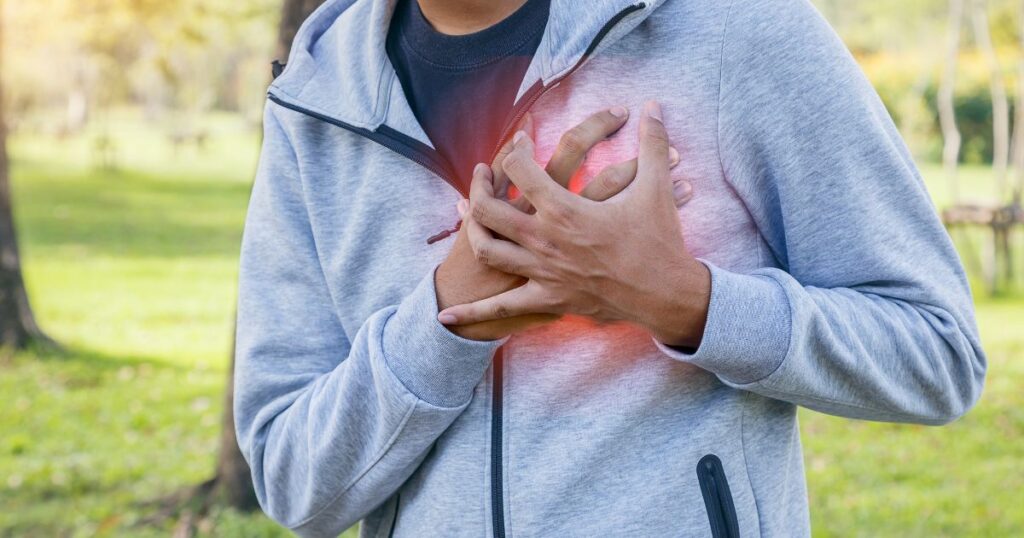A myocardial infarction, more commonly known as a heart attack, occurs when any part of your heart doesn’t get enough blood. The consequences may be minor or potentially life-threatening, depending on the severity of the attack, your gender, and other factors. Here’s more about what a heart attack feels like so you can be sure to seek proper treatment.
Heart Attack Symptoms
The most common symptoms of a heart attack include:
- Chest pain or discomfort, especially on the left side of the chest
- Feeling faint, weak, or lightheaded
- Jaw, neck, or back pain
- Pain radiating down one or both arms
- Shortness of breath
These symptoms may last anywhere from a few minutes to several hours. The faster you seek medical treatment, the less damage your heart muscle will sustain. Note: If you have experienced chest pain for days or weeks, you are most likely not experiencing a heart attack.
Pre-Heart Attack Symptoms
Many people experience early warning signs in the days or weeks leading up to a full-on heart attack. Talk to your doctor if you have:
- Anxiety
- A feeling of impending doom
- Fullness in the chest
- Fatigue
- Any of the heart attack symptoms listed above
Mini Heart Attack Symptoms
“Mini” or “silent” heart attacks account for nearly half of all myocardial infarctions. While they are short-lived and lack the intensity of a regular heart attack, you should seek immediate medical attention if you notice any of these mini heart attack symptoms:
- Chest pain that lasts several minutes or comes and goes
- Throat pain that feels like indigestion
- Discomfort in the jaw, neck, upper back, stomach, or one or both arms
- Shortness of breath
- Lightheadedness
- Nausea
- Fatigue
- Breaking out in a cold sweat
Heart Attack Symptoms in Women
As with men, chest pain or discomfort is the most common sign of a heart attack in women. However, women are more likely to experience other, more unusual symptoms alongside or preceding a heart attack. Here are some signs and symptoms of a heart attack that apply specifically to women:
- Feeling pain or fullness in the center or left side of the chest
- Pressure or squeezing sensation in the chest
- Shortness of breath not necessarily caused by chest pain
- Unexplained fatigue or weakness
- Unusual anxiety or uneasiness
- Cold sweats, body aches, and other flu-like symptoms
- Lightheadedness
- Nausea and vomiting
Heart Attack Treatment in Texas
If you experience any symptoms of a heart attack, call 911 or visit Exceptional Emergency Center immediately. We are a freestanding emergency room with locations in Amarillo, Beaumont, Brownsville, Ft. Worth, Harlingen, Livingston, Port Arthur, Orange, and Tyler, TX to better serve you. The sooner you get to our emergency clinic, the faster you can receive the care you need.
Contact us with any questions you have about heart health or to inquire about our ER services.

